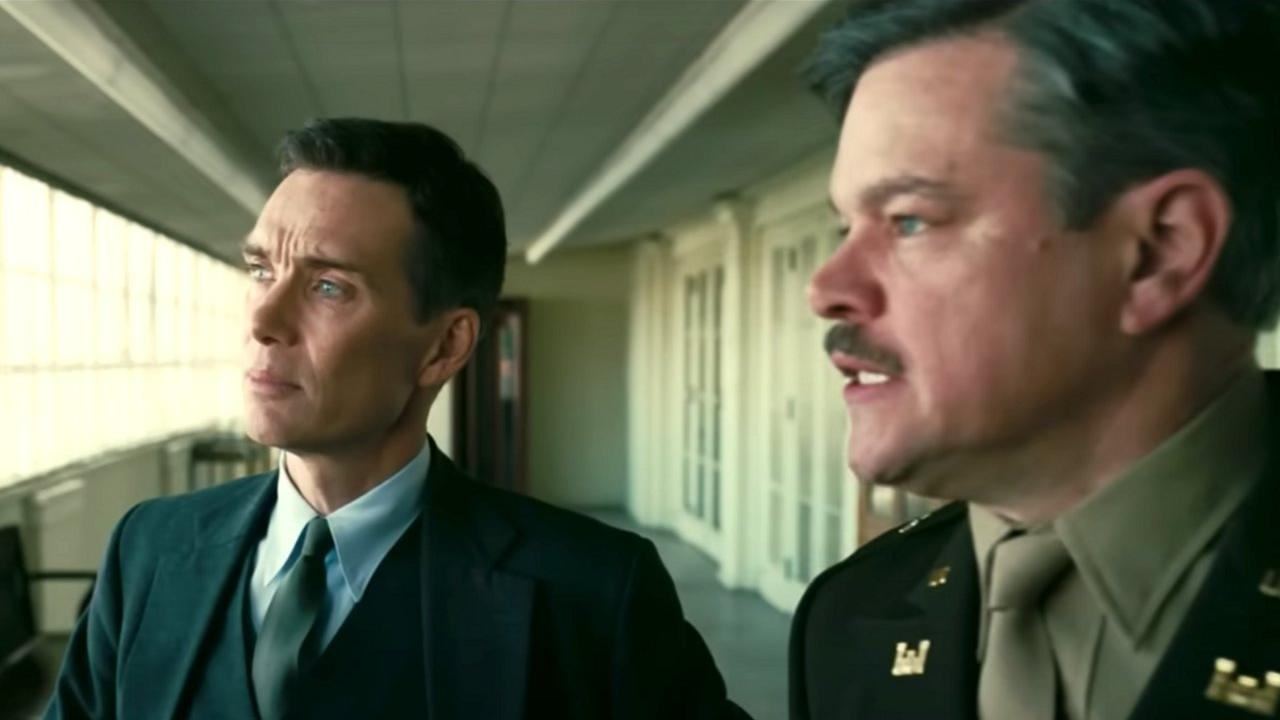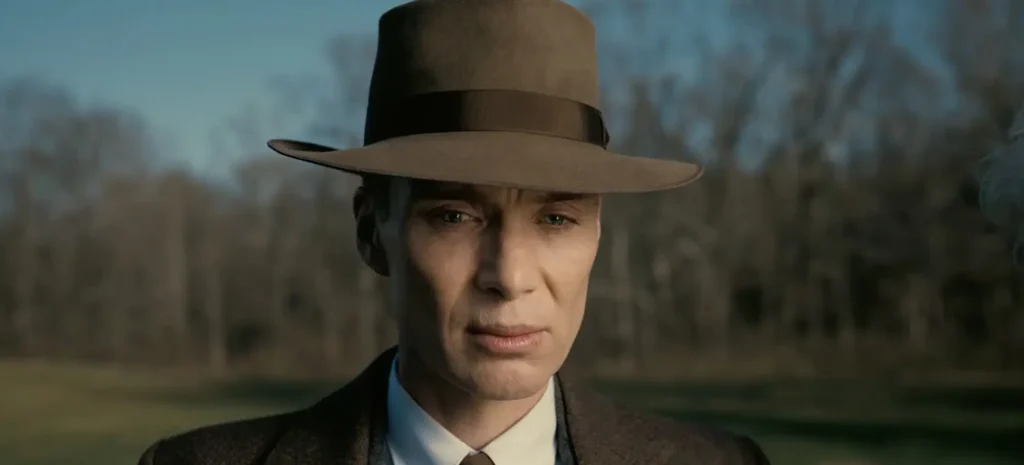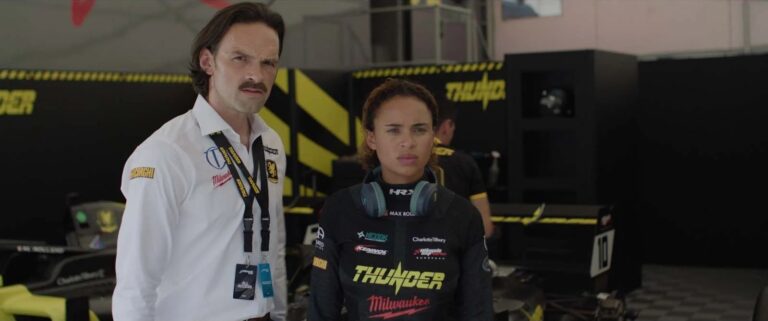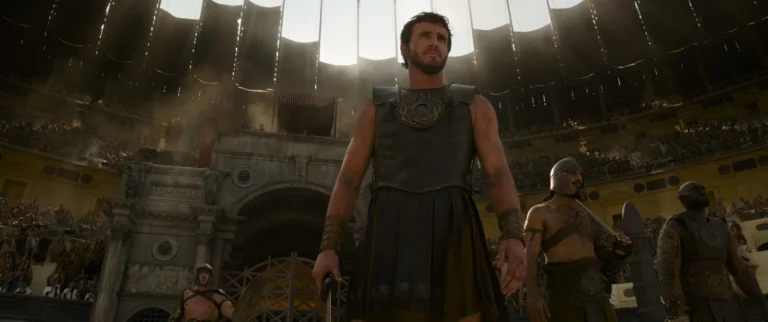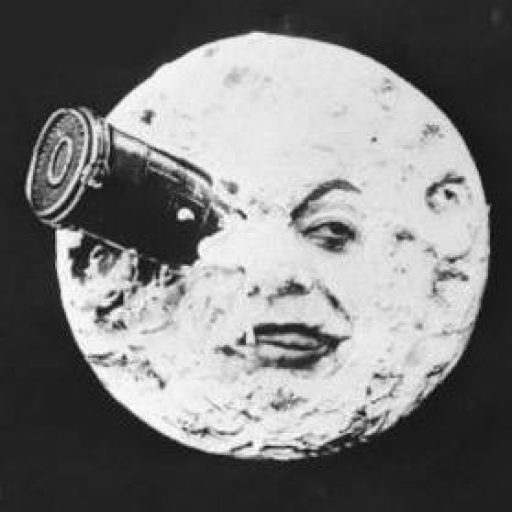OPENHEIMER
Theatrical release: July 19, 2023
Duration: 3h01
Director: Christopher Nolan
Main actors: Cillian Murphy, Emily Blunt, Matt Damon
Synopsis: In 1942, convinced that Nazi Germany was developing a nuclear weapon, the United States initiated, in the greatest secrecy, the “Manhattan Project” intended to develop the first atomic bomb in history . To pilot this device, the government hired J. Robert Oppenheimer, a brilliant physicist, who would soon be nicknamed “the father of the atomic bomb”.
Just after leaving Warner Bros to join Universal, Christopher Nolan had declared that his next would be a biopic about the man who invented the atomic bomb. Surprised, I especially had one fear, that the studio would impose its vision to the point of leaving no artistic choice to Nolan.
But the proof is that after leaving the cinema session, I was wrong.
Some will criticize Nolan for explaining everything to the viewer like in Tenet and Interstellar (remember the scene where we explain the glass holes with a sheet of paper), we cannot blame Nolan for making films with discount. And for me, almost all of his films are a success.
In fact, at the time of the release of Tenet, do a very long review on the subject in the form of an open letter. His mastery of the camera, the way he documents the subject, the artistic choices, but above all his absolute desire that his films will be released first in cinemas, and not on SVOD platforms. This desire and his values make him today one of the rare directors in the art of telling captivating stories and seeing it on the big screen.
It's for these kinds of films that I go to the cinema, but first and foremost because cinema is a real experience when you go to see films with strong symbols.
Following the end of his collaboration with his brother in the writing of his films, Nolan wrote and directed two films: Dunkirk and Tenet. Even if the latter somewhat divided the public by its complexity, this remains the only pitfall of his filmography. But if the film did not meet Warner's expectations, the blame should not be entirely placed on Christopher Nolan. We were still in the Covid period and the public was quite reluctant to return to theaters, lost and distressed by the restrictions made by distributors to access theaters (mask required, an empty seat between two people). The climate was not good. The climate did not calm down either when Nolan openly criticized Warner who wanted to release his productions in theaters and on HBO Max at the same time. This triggered the end of the collaboration between Nolan and Warner Bros.
His arrival at Universal made me say that the upheavals having recently taken place in Hollywood, Nolan's films were perhaps going to suffer artistically. The return of composer Ludwig Göransson on Oppenheimer after Tenet made me cringe a little. Although I don't know Ludwig Göransson for his work, I have to say that his music on the sci-fi/spy film is a bit garish and the least melodic of what I know.
Well here, in Oppenheimer, it's quite the opposite. The music perfectly shapes the scenes and accompanies the tense moments brilliantly. The editing is also to be congratulated, highlighting what is happening in Oppenheimer's head when the moment of the first explosion arrives.
It is also at several moments in the film that we see the thoughts of the father of the atomic bomb, through images of desolation on the consequences of his actions. Or the camera which shakes while staring at Oppenheimer, suggesting that Oppenheimer is terrified by its discovery and the use that may be made of it by the army. Although his colleagues are delighted with the success of their research, Oppenheimer is terrified by the results.
The film lasts three hours but never tires the viewer caught up in the scope of the story. Because, if for Nolan it is a question of telling the story of the first atomic bomb, he enriches his story with the personal and sentimental life of Oppenheimer, all sprinkled with politics and betrayal.
Many movie fans know Nolan for his interest in time. And once again, he surprises us and subverts cinematic codes. While in most films, black and white scenes evoke passages set in the past, here Nolan uses these colors to tell us the present. There are also three temporalities as in Dunkirk. But this time, without indicating when it is happening. This may seem a little confusing at first, but without letting our brain question itself throughout the film. Gymnastics is easy to do and you quickly get used to it.
We also know that Nolan likes practical effects, more than digital effects. You will have to buy the DVD or Blu-ray of the film to find out how he was able to realize Oppenheimer's visions, or even capture a mushroom cloud. An article from Allociné revealed how he proceeded with the explosion sequence.
As for actors, only Nolan and a few rare directors can boast of offering such a fine cast: Cillian Murphy, Émilie Blunt, Robert D Junior and Matt Damon in general seeking to achieve their goals at all costs and thinking in a very pragmatic way.
Whether supporting roles, all excel in their characters with the lead constantly having doubts about what is obsessing him. And as I said above, it is Nolan's staging which highlights all the facets of the different actors in this moment in our history.
Oppenheimer, until his death, regretted having invented this device of destruction. Through his dialogues in the film and real life, he says he is a destroyer of the world, so much remorse will eat him from the inside.
A biopic to watch, to learn everything about the first atomic bomb and its consequences on our current society.

